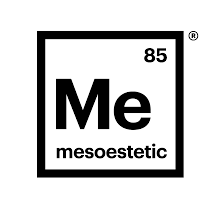The consultation is an incredibly important part of your work. This is where you meet potential patients, find out their needs and begin a treatment plan. There is a lot that must be addressed with a consultation to ensure both patient and practitioner are confident to start their journey together.
Nowadays anybody, anywhere can access aesthetic treatments. Uninformed decisions can leave patients damaging their bodies whilst trying to conform with celebrity standards. As a practitioner in this area it is your duty to assess each patient as an individual, help them to make informed decisions and be aware that sometimes you need to say the word “no”. You will also need to be able to suggest other treatments which may be more suitable for your patient or even refer to independent specialists.
Nuffield Council on Biothetics Report
Within recent weeks we saw Nuffield Council on Biothetics released a report on “Cosmetic Procedures: Ethical Issues”. A report which we encourage all of our delegates to read. Within this report they address the factors which an individual may make whilst deciding to have treatment. From social media “likes” to virtual reality apps, aesthetic treatments are more apparent now than they ever have been. Valid points are made throughout the report and practitioners are encouraged to open their eyes wider to the reasons people may be coming to them for treatment. In conjunction with our online training module specifically made for consultation advice and guidelines, we support all topics raised and have pin pointed 5 steps to ensure you and your patient get the best out of a consultation.
5 steps for a perfect consultation:
-
Consent & safety:
In order for your patient to give consent to any treatment they must make a voluntary, informed decision supported by their own capacity. This is a must as nothing can be done until consent has been agreed. Patients have the right to withdraw their consent at any time and the same goes for a practitioner refusing consent.
-
Capability & limitations:
Work within your skills and knowledge. Resist feeling pressured by peers or patients to deviate far outside of your comfort zone. We are all bound by our professional bodies conduct and should abide by these within our practice. Feel confident in your practice as your name and reputation are based on the outcome of the treatment.
-
Psychological:
As a practitioner you need to have a clear understanding as to why your patient is considering aesthetic treatments. It is important that you listen to their concerns and are aware of the outcome they are hoping to achieve. Assess the situation. What is their reason for treatment? Are they making this decision due to peer pressure or a possible psychological reason? Do they have realistic expectations and do you feel you are the right practitioner for them? You must conduct a duty of care to your patients and to refuse treatment where you see best.
-
Communication:
The goal is to make your patient understand everything about the decision and treatment even if it is a refusal to do it. You must spend time talking through every step of the process including the treatment process, aftercare, possible complications and include previous before and after photos where you can. The greater knowledge and understanding of the procedure your patient has, the more informed decision they will make. This will also help to prevent post-procedure regret.
-
Do not rush:
We advise that you do not rush into treatment and allow both yourself and the patient time to consider the treatment. We also recommend that for continuity of care your patient should see the same practitioner throughout the process. This will help build a strong patient and practitioner relationship and will also help to avoid any potential pitfalls.
Cosmetic Courses Online Training Academy
Why enrol to Cosmetic Courses Online Academy?
- Learn key areas of aesthetic medicine including pharmacology, anatomy, consultation skills, managing possible complications and much more
- You can complete the course anywhere in your own time
- You can regularly refer back to specific modules when needed
- Built on the philosophy of blended learning, the courses are created to keep the interest of the delegate and meet all learning needs
- There are games and quizzes throughout the modules to test your knowledge and an end of course test to show successful completion
- The unique “Contact your Mentor” feature gives you access to our team for advice and help
- 8 modules including a short course introduction into Botox & dermal fillers
- Level 7 online training modules included within the academy










